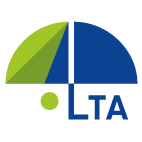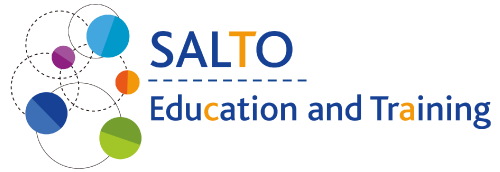Unlocking Democracy: Inclusive Participation through Erasmus+

Main Info
TCA Description
This cross-sectoral TCA is part of the LTA Peace+ organised and run by the IT02. The TCA focuses on exploring how Erasmus+ can be a powerful tool to promote democratic engagement and active citizenship across different educational sectors. It addresses key themes such as civic participation, social inclusion, intercultural dialogue, and European values. The seminar aims to bring together participants from diverse educational and training backgrounds to collectively reflect on how we can empower individuals and communities to become active agents of change in democratic life.
The overall goal is to inspire and support participants in designing impactful Erasmus+ KA1 and KA2 projects that promote inclusion, democratic values, and participatory practices. The event will explore practical tools, innovative approaches and inclusive methodologies that can help remove barriers to participation and strengthen civic engagement. By encouraging collaboration among stakeholders from various sectors, the TCA aims to foster a deeper understanding of how Erasmus+ can contribute to building resilient, democratic, and inclusive societies. Participants will also work on identifying challenges related to exclusion and underrepresentation and will be supported to find creative and practical ways to address these through cross-sectoral cooperation.
By the end of the activity, participants are expected to have increased their capacity to develop and implement inclusive Erasmus+ projects that support active citizenship and democratic participation. They will leave with concrete tools, methods, and inspiration to enhance civic learning and social responsibility in their work. The event will also serve as a space for exchanging good practices and discussing real-life examples of how inclusion and democratic engagement can be supported through Erasmus+ initiatives.
Moreover, participants will have the opportunity to establish new cross-sectoral partnerships, generate initial project ideas and explore the potential for future KA1 and KA2 projects. The TCA aims to boost the motivation and competence of educators, trainers, and project coordinators to address topics such as intercultural understanding, community resilience, and participatory learning. In doing so, it will contribute to strengthening the European dimension of education and training and supporting meaningful inclusion and participation across all levels of society.
An initial outline of the program is below:
- Arrival on the 18 November 2025 (afternoon)
- Main sessions will take place on 19–20 November 2025
- Cultural programme will take place on 20 November 2025 (afternoon - optional participation)
- Departure on the 21 November 2025
Partners and participants
This activity is open to participants from all Erasmus+ sectors. It is particularly relevant for those involved in the preparation or implementation of KA1 and KA2 projects. It also welcomes institutional representatives and practitioners with experience or strong interest in themes related to inclusion, civic engagement, and democratic participation.
Newcomers and less experienced beneficiaries, as well as experienced beneficiaries in the implementation of Erasmus+ projects are welcome.
The TCA is intended for those who wish to explore cross-sectoral cooperation and develop new Erasmus+ initiatives that foster active citizenship and empower underrepresented groups. Ideally, participants should have a role in project planning or implementation within their organisation, and a willingness to collaborate, share practices and develop concrete follow-up activities in the field of democratic participation and inclusion.
Pending booked places
Accepted places
TCA Participant Application
Long-term Activity Info
The new edition of LTA PEACE+ (2025-2027) aims to expand the achievements of the first LTA PEACE initiative, reinforcing European identity and civic engagement through an integrated network of Erasmus Alumni, Ambassadors, and Role Models. The key objectives include:
Strengthening cooperation between Erasmus+ National Agencies to broaden participation and outreach.
Enhancing communication and dissemination efforts to engage a larger number of stakeholders and citizens.
Providing structured training on EU values and European citizenship education.
Continuing research on civic engagement to better target messages and content.
Increasing synergies between different European programs to foster mobility and civic participation.
Expansion of Networks
The initiative seeks to:
Unify and expand networks of Erasmus+ Ambassadors, Alumni, and Role Models across multiple countries to foster a deeper sense of European belonging.
Strengthen partnerships with institutions at local, national, and international levels to promote civic engagement.
Develop a robust governance structure that ensures sustainability and impact measurement through national Observatories.
Institutional Collaboration and Measurement
Establish stable relationships with territorial institutions for sustained collaboration.
Implement tools to periodically assess improvements in civic engagement, internationalization, social inclusion, and digital transition.
Event Planning and Outreach
Define a recurring program of events at the national and international levels, here follow a draft calendar:
PEACE+ Kick-off Meeting (February 2025, Florence, Italy - INDIRE)
PEACE (April 9-11, 2025, Cluj-Napoca, Romania)
EU Values and Participation (October 2025, Riga, Latvia)
TCA for Kindergarten Teachers (October 2025, Tallinn, Estonia)
TBD Event (October 2025, Greece)
TBD Event (November 2025, Germany)
TBD Event (2026, Vienna, Austria)
TBD Event (2026, INAPP, Italy)
- Organize multi-country meetings where Alumni and Ambassadors collaborate in outreach activities with students and teachers.
- Enhance the impact of Erasmus+ initiatives through coordinated communication strategies.
Planned activities divided for Work Packages (WPs)
WP1 - Governance
Coordination and strategic oversight of PEACE+ activities.
Establishment of a Board of Directors and an Operational Board.
Signing of a Memorandum of Understanding among National Agencies.
Monitoring progress and impact measurement through key performance indicators.
WP2 - Networks
Strengthening and expanding Alumni and Ambassador networks across Europe.
Formalizing agreements with established Erasmus+ networks (e.g., ESN, Erasmus Garage).
Developing IT tools for efficient network management.
Creating structured methodologies for selecting and engaging network members.
WP3 - Training
Developing training modules on European values, civic engagement, and political literacy.
Producing digital learning materials, including e-modules and interactive resources.
Facilitating knowledge exchange through structured online and in-person training events.
Creating an open-access training platform to support Erasmus+ beneficiaries and the general public.
WP4 - Communication
Designing and implementing a comprehensive communication plan.
Producing promotional materials, reports, videos, and case studies to highlight Erasmus+ impact.
Conducting targeted outreach campaigns at the national and European levels.
Engaging media and stakeholders in dialogue on civic participation and European citizenship.
WP5 - Research
Conducting studies on key themes such as political engagement, social inclusion, and EU citizenship.
Collaborating with academic institutions to develop research reports.
Integrating findings into policy recommendations and future Erasmus+ initiatives.
Organizing international conferences to disseminate research outcomes.
Strengthened and expanded networks of Erasmus+ Alumni, Ambassadors, and Role Models.
Increased public awareness and participation in European civic engagement initiatives.
Greater synergy between Erasmus+ programs and other EU-funded initiatives.
Enhanced training opportunities to promote EU values and citizenship education.
A data-driven approach to measuring the impact of Erasmus+ on civic engagement.


